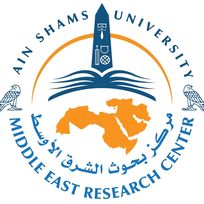|
|
|
Center Director |
Dr. Hatem Hassan Mohammed Al-Abd |
|
Mobile |
01018880774 |
|
|
Establishment of the center:
The Middle East Research Center was established on February 12, 1967 based on a decision of the Ain Shams University Council headed by Prof. Dr. Mohamed Morsi Ahmed under the guidance of President Gamal Abdel Nasser. Since 1999, the name of the Center has become the Middle East Research Center and Future Studies. With the aim of giving the center part of its interests to foresee the future.
The establishment of the center came from the belief of the state and the university in the importance of the Middle East in the focus of global politics.
Center position:
The center has reached a great position that made state officials benefit from its studies. In 1973, a few days before the October War, Mr. Muhammad Hafez Ismail, the political advisor to the President of the Republic, came to the center and requested the preparation of a study on the possible expectations in the event of a war between the Arabs and Israel and the use of oil as a weapon in the battle. The Director of the Center at that time, Prof. Dr. Fawzi Mansour, invited a number of scholars of the Center and the University to meet on the same day in the Center and prepare the required study, which was completed at dawn the next day, where the Director of the Center handed it over to the Adviser to the President of the Republic.
One of the center’s scientific initiatives and its response to political events in the Middle East was that, after Iraq’s invasion of Kuwait on August 2, 1990, it issued the Gulf Events Bulletin, which covered the Gulf events and the various effects that resulted from this invasion in four successive issues, depending on different sources such as the Arab press and foreign affairs, in addition to a number of analytical articles by specialists in the political, historical, geographical and other fields.
The Center also invited the Palestinian ambassador to Cairo in December 2017 to hold a lecture after US President Trump moved his country's embassy to Occupied Al-Quds.
The interest of the sovereign authorities in the country in the importance of the role of the center has been requested from the center
Preparing a report on the impact of the Renaissance Dam on Egyptian national security.
Preparing a report on the impact of the Arab Gulf states' normalization with Israel on Egyptian national security.
The impact of terrorism on Egyptian national security
Center vision:
The Middle East Research and Future Studies Center seeks to be at the forefront among scientific centers in Egypt, the Arab world, and the world, in the field of preparing research and studies with competitive capabilities capable of contributing to community development plans, and contributing to the development of knowledge and raising awareness of everything related to the region in light of international balances and political variables.
Center message:
Providing scientific studies in all economic, social, political and cultural fields in the Middle East and supporting the political decision-maker by providing advisory services, keeping pace with the scientific research movement and modern global trends, and spreading awareness in society through holding conferences, seminars, scientific meetings and various activities.
Center goals:
The center primarily aims to achieve the following objectives:
1- Providing research and scientific advice requested by the country’s sovereign authorities.
2 - Carrying out future studies of the most important activities and processes affecting the movement of society in various fields such as water resources, economic, social and political affairs.
3- Holding conferences, seminars, lectures, workshops and training courses in the areas concerned by the Center
\4 - Strengthening cultural and scientific ties with universities, centers and scientific bodies interested in this activity, both inside and outside Egypt, through holding scientific and cultural memoranda of understanding.
5- Publishing academic scientific research that is submitted to the Center for publication in the Center’s Journal
6 - Spreading scientific and cultural awareness through the publication of scientific books.
Center departments:
The center includes a number of divisions and scientific units that, in total, aim to study the following:
1- Land and natural resources
2- Economic Studies
3- Social Studies
4- Political Studies
5- Israeli studies
6- Historical Studies
7- Iranian Studies
8- Turkish Studies
9- Human Studies
10- Future Studies
11- Legal Studies
One of these eight sections is activated first, and the rest is on the list and is activated when needed


